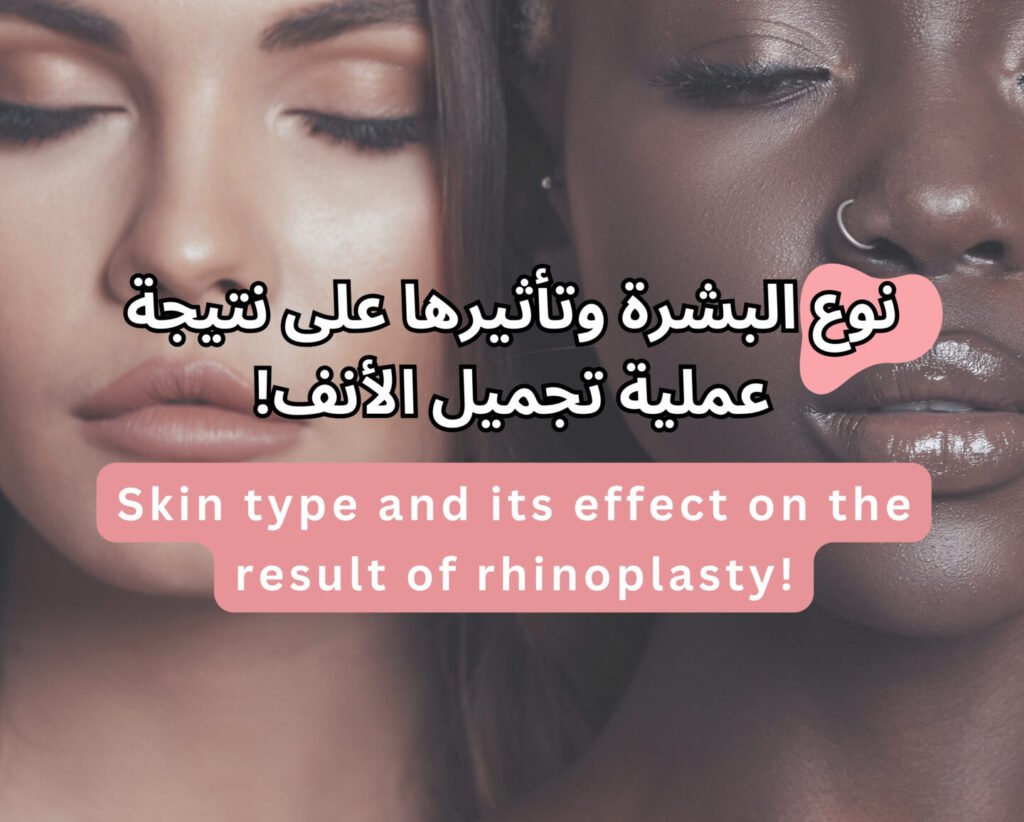
How Skin Type Affects Rhinoplasty Results – best ENT in dubai
When considering rhinoplasty, understanding your skin type is crucial because it directly affects healing and the final surgical results. Skin is generally categorized into four main types:
Oily Skin: This skin type produces excess sebum, leading to a shiny appearance and enlarged pores. While oily skin tends to be thicker and more resilient, it can make achieving fine nasal contours more challenging for the surgeon. Patients with oily skin may also be more prone to acne and blackheads.
Dry Skin: Dry skin lacks adequate moisture, often appearing flaky, rough, or dull, and is usually more sensitive. After rhinoplasty, extra care such as thorough moisturizing is needed to prevent irritation and support optimal healing.
Combination Skin: Characterized by an oily T-zone (forehead, nose, chin) alongside drier cheeks, this skin type requires a tailored approach both during surgery and post-operative care due to its variable nature.
Sensitive Skin: Easily irritated by products or environmental factors, sensitive skin necessitates extra precautions to reduce inflammation and promote smooth recovery following surgery.
Additional Factors Influencing Skin and Rhinoplasty Outcomes
Skin characteristics are also influenced by ethnicity, age, and genetics. Ethnic background affects skin thickness, pigmentation, and oil production, all of which impact rhinoplasty results. As we age, skin elasticity decreases, and moisture retention diminishes—young skin typically heals more quickly, while older skin may be prone to dryness and laxity. Genetics play a significant role in how skin responds to both surgery and recovery.
How Skin Type Influences Rhinoplasty Results
The type and quality of skin can significantly affect rhinoplasty outcomes:
- Thick, Oily Skin: Often less elastic, it may cause prolonged swelling and more noticeable scarring. Its thickness can also obscure subtle changes made to the nasal framework, making detailed refinement harder to achieve.
- Thin, Dry Skin: Tends to highlight imperfections or irregularities, potentially resulting in a less smooth postoperative appearance.
Skin elasticity is equally important—patients with high elasticity generally experience smoother healing and more predictable outcomes, while those with lower elasticity may face uneven healing or complications.
Personalized Care for Optimal Healing
The best ENT specialists and rhinoplasty surgeons in Dubai stress the importance of personalized care tailored to each patient’s skin type. This may involve specific skincare routines, medications, or lifestyle changes before surgery to enhance skin condition. After surgery, customized treatments target oil control, hydration, or sensitivity to optimize healing and aesthetic results.
Patient Experiences
Many patients with thicker skin who follow customized care plans report high satisfaction despite the inherent challenges of their skin type. Likewise, patients with thin skin who adhere to tailored postoperative protocols often enjoy fewer complications and refined nasal contours.
Conclusion
Understanding your skin type is vital when planning rhinoplasty. Partnering with the best ENT or rhinoplasty surgeon in Dubai ensures your treatment plan is personalized to your unique skin characteristics, resulting in a smoother recovery and the best possible aesthetic and functional outcome.